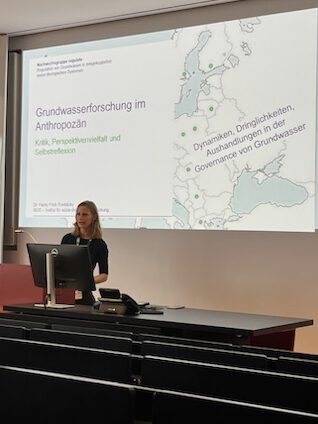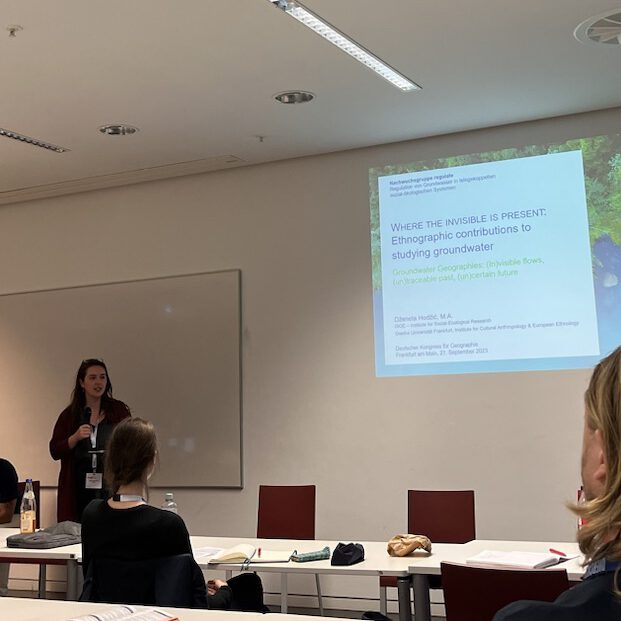The “German Congress of Geography 2023 (DKG)” took place in Frankfurt am Main, Germany, September 19-23. Following the topic “planetary futures”, scientists came together to discuss on societal transformations in the context of current multiple crises.

Almost the entire regulate-team participated with various contributions. Fanny Frick-Trzebitzky gave a talk on groundwater research in the Anthropocene and how non-hegemonic knowledge is made (in)visible and included in transdisciplinary research (find more details here). David Kuhn gave insights into his current research on the socio-hydrology of long-distance water transfers in Germany and its important role to climate change adaptation (more information here).

A particular highlight was the lightning session chaired by the regulate team, entitled “Groundwater Geographies: (in)visible flows, (un)traceable past, (un)certain future”. With contributions from international researchers, we demonstrated the potential of interdisciplinary perspectives on groundwater to envision the planetary future of this vital resource. Within the first sub-session we raised the question of how groundwater conflicts evolve/ change within the process of conflict management and what kind of second-order problems emerge from initial groundwater use conflicts. The research insights touched upon groundwater quality problems caused by fluoride contamination in Bihar, India (Amir Kumar Srivastwa, Ambedkar University Delhi), the role of groundwater as a non-human actor in groundwater related conflicts (David Kuhn, ISOE), and the story of La Mancha Oriental Aquifer (Iordanka Guenova Dountcheva-Robles et al., University of Castilla-La Mancha). The second sub-session referred to the questions of how knowledge on groundwater travel across spatial boundaries and how boundaries between regions/surface/underground do change. Participants gave inputs on ethnographic contributions to studying groundwater (Dženeta Hodžić (ISOE), a case-study in eastern England on digital innovations for (ground)water management (Christina Walter, University Augsburg), the problems of classifications such as surface and subsurface in groundwater programs at local scales (Dhaval Joshi, University of Edinburgh), and the water-tourism nexus on the island of Krk, Croatia (Robert Luetkemeier, ISOE/ Linda Söller, Goethe-University Frankfurt).
